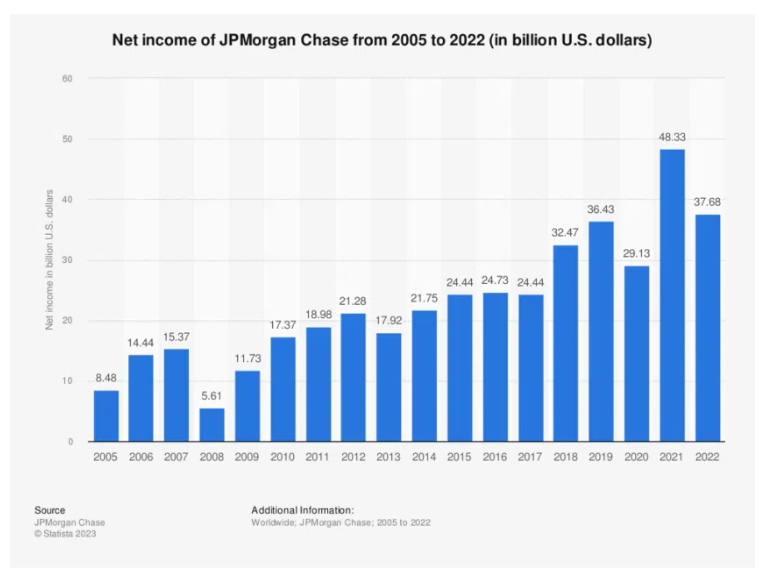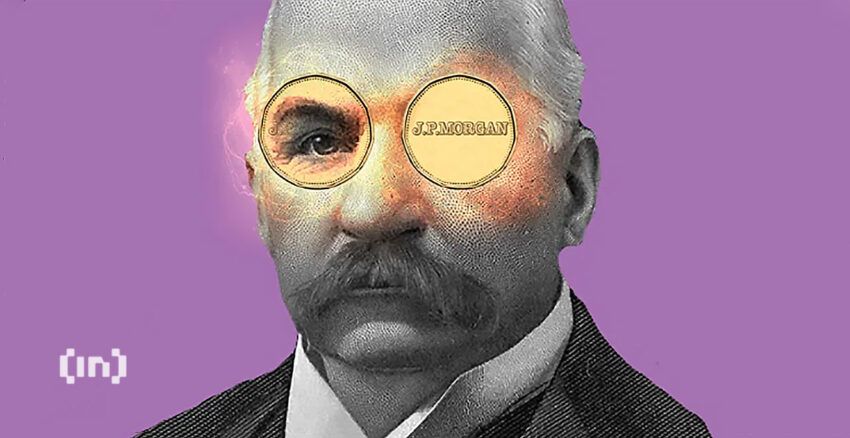JPMorgan Chase & Co.’s digital token, JPM Coin, is gaining popularity in finance. Takis Georgakopoulos, the bank’s Global Head of Payments, shared some updates, saying JPM Coin now processes $1 billion in transactions daily.
The JPM Coin is a live blockchain application by a major bank. It allows wholesale clients to make dollar and euro payments. These payments are made via a private blockchain network.
The $1 billion daily transaction volume is impressive. Yet, it is a small part of the $10 trillion in US dollar transactions the bank handles daily.
JPMorgan Explores Other Blockchain Ventures
“JPM Coin gets transacted on a daily basis mostly in US dollars, but we again intend to continue to expand that,” said Georgakopoulos.
Read more: Blockchain Specialist Web3 Jobs
JPMorgan is also looking into other blockchain ventures. They are considering a blockchain-based deposit token for faster cross-border settlements. Georgakopoulos said they are thinking about a more retail version. This version would bring the same efficiency to consumers.

JPM Coin Helps With Real-Time Liquidity
Blockchain technology could offer faster, cheaper payments than current systems. However, digital ledgers are still being tested at the same scale as traditional payment networks. But companies like Ripple with its XRP token are proving to be a significant threat, hence the need for banks to play catch-up.
JPM Coin, the first major cryptocurrency backed by a US bank, is important. It helps with real-time liquidity funding and payments. Each coin equals one US dollar. It acts as a payment rail and deposit account ledger for JPMorgan clients.
JPM Coin’s introduction has led to speculation about its impact on other cryptocurrencies. XRP, known for its efficiency and real-time transactions, is one of them. Unlike XRP, JPM Coin operates within JPMorgan Chase’s ecosystem. This reduces potential risks significantly.
Read more: What is Tokenization on Blockchain?
In June, JPMorgan introduced euro settlements between wholesale clients. Among other advantages, the exchange of tokenized funds allows firms’ financial departments to pay service providers just before they need it. Doing so helps them earn more interest since funds stay in company accounts longer.
In adherence to the Trust Project guidelines, BeInCrypto is committed to unbiased, transparent reporting. This news article aims to provide accurate, timely information. However, readers are advised to verify facts independently and consult with a professional before making any decisions based on this content.
This article was initially compiled by an advanced AI, engineered to extract, analyze, and organize information from a broad array of sources. It operates devoid of personal beliefs, emotions, or biases, providing data-centric content. To ensure its relevance, accuracy, and adherence to BeInCrypto’s editorial standards, a human editor meticulously reviewed, edited, and approved the article for publication.


